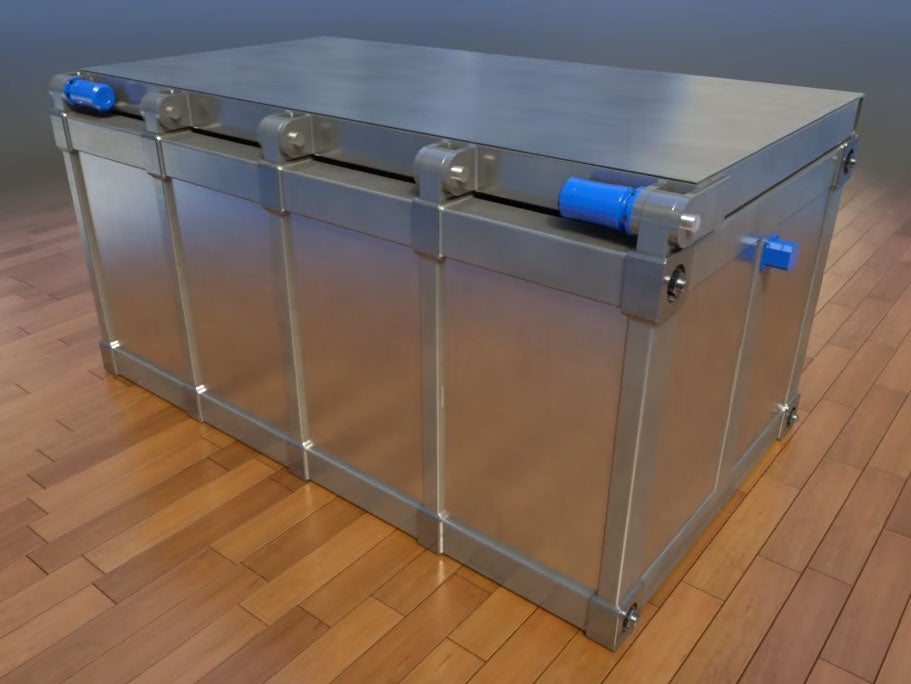Russian inventor creates nightmarish earthquake-proof bed that seals its occupants in a metal box
You might be saved from an earthquake, but you're in for a rude awakening if your leg is hanging over the side of the bed

A Russian inventor has designed a nightmarish bed that can protect its sleeping owner by folding them up in a steel coffin in the event of an earthquake.
On first glance the bed looks completely conventional, despite being quite high.
However, if an earthquake hits, sensors in the bed detect the movement and collapse the mattress down into the bed's box-shaped metal body.
After this, a lid shuts over the top, protecting the occupant from falling masonry or even a building collapse.
Supplies of food, bottled water, first aid materials and even gas masks are kept at the bottom of the structure, to ensure the lucky (or unlucky) occupant survives until help arrives.
An animated video of the beds in action show a few different models, from a full king-size bed down to a smaller double. There's some slight variations in design, but they all work in the same way - suddenly dropping the mattress into a box and closing a lid over the top.
On the face of it, it's a good idea. Earthquakes can be devastating, and they're almost impossible to predict - so if you're sleeping when one occurs, you may not be able to take action until it's too late.
However, there's a few problems - the pitch video doesn't explain what happens if the occupant's leg is hanging over the side when the giant steel lid snaps down over the top of the bed. And if it goes off accidentally, or if the quake is only minor, you'll have a fairly unique excuse for not turning up to work on time.
The video appears to have been created by Dahir Semenov, a Russian inventor who creates concept designs for defence and security devices like this.
Some of Semenov's more bizarre concepts include a giant monorail-hovercraft hybrid capable of transporting hundreds of people at a time, and solar-powered, ground-based drones capable of camouflaging themselves and destroying tanks.
Based on some of these ideas, it seems likely that the earthquake bed will only ever remain a concept - but similar systems have been developed before.
One earthquake-proof bed that works in a similar way was created and tested in China in 2012. It works by folding the base of the bed up and over the sleeping occupants, creating a metal lid that could provide some protection. This one operates much slower than Semonov's design, reducing the chances of a limb being lost significantly.
And in May this year, a team of Israeli designers created an ordinary school desk that is capable of withstanding a crushing weight of a metric ton.
It's an interesting concept that could potentially save lives, but after seeing the video, it's safe to say that most people would take their chances with the earthquake.
Join our commenting forum
Join thought-provoking conversations, follow other Independent readers and see their replies
0Comments